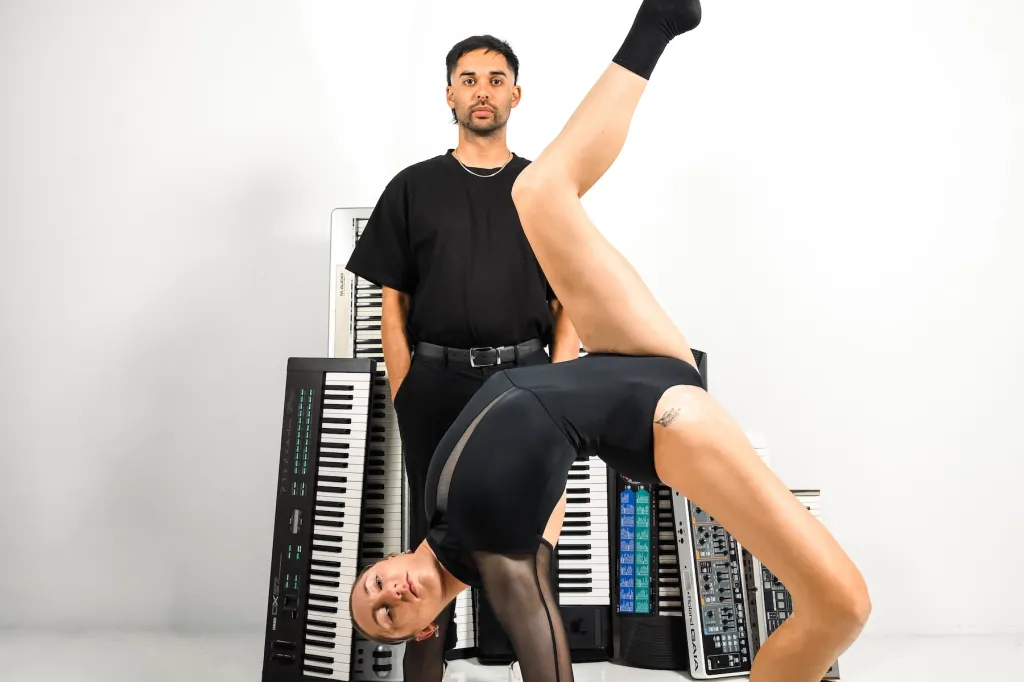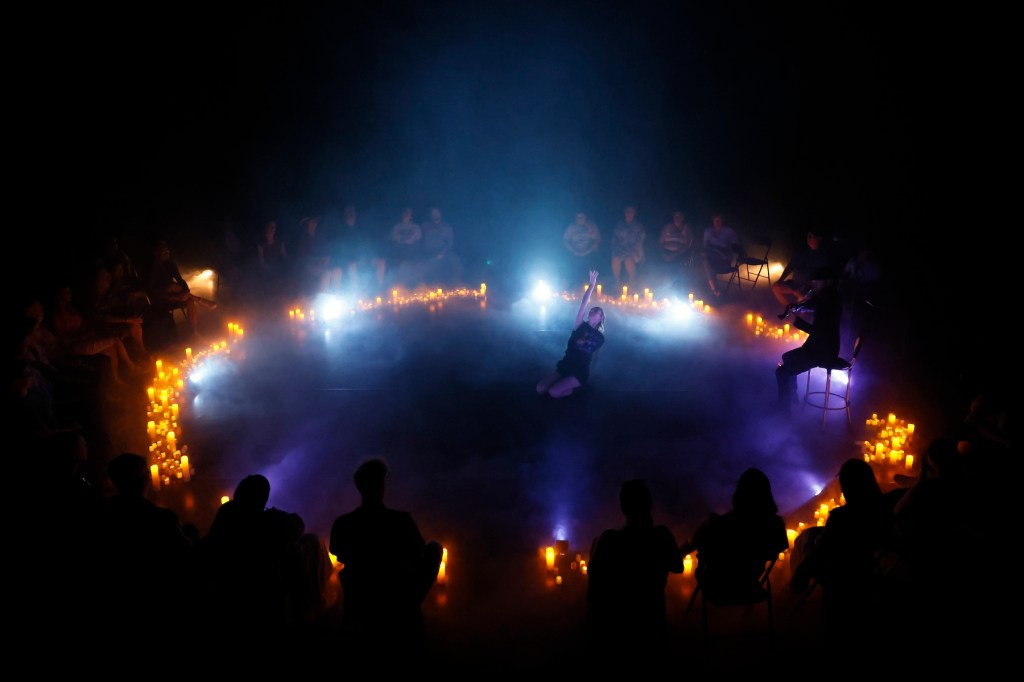‘Dance is not this pretty little thing’: Club Amour’s dances of desire
Celebrated European dance company Tanztheater Wuppertal returns to Adelaide Festival with a series of raw works that bridge ‘pure love and torture’ — and invite audiences up onstage.
“Dance is not this pretty little thing that has to be on opera stages,” Boris Charmatz explains over the phone from Brussels. “Dance can be in the shower, in front of your smartphone, in the mud, under the rain.”
The French choreographer and dancer, variously described in European media as a ‘trailblazer’, ‘maverick’ and ‘cultural provocateur’, says that mounting productions outdoors or in unorthodox locations is about changing the way people view art.
Charmatz’s past works include an ensemble piece performed on a carpark rooftop in the French city of Poitiers in the wake of the 2015 Bataclan concert hall attack in Paris, a takeover of London’s Tate Modern that saw the gallery transformed into a Musée de la danse for 48 hours, and a large open-air event in Berlin that involved migrants performing Syrian dance in defiance of the increasing prominence of the extreme right.
“It [dance] is a very good, I would say, political medium in the sense that our society is so divided,” he tells InReview.
“When we go outside we are all together and maybe people may not like what we are dancing, I don’t know, it’s not only peace and love… you can also make statements.”

Café Müller being performed at Berliner Festspiele. Photo: Oliver Look / Berliner Festspiele / Supplied
Charmatz is the founder of Terrain, an ongoing French project dedicated to “dance without walls”, and since mid-2022 has also been director of Tanztheater Wuppertal, the iconic German company founded by Pina Bausch.
After presenting sold-out show The Rite of Spring / common ground[s] at the 2022 Adelaide Festival, Tanztheater Wuppertal is returning this year with a triptych exploring love and desire. Club Amour brings Bausch’s 1978 signature work Café Müller together with two pieces by Charmatz: Aatt enen tionon, which sees a trio of dancers performing on three elevated platforms, and herses, duo, in which two near-naked dancers are constantly tangled together.
All three will be performed in a conventional theatre, but, in a twist that’s in step with Charmatz’s unconventional vision, Aatt enen tionon and herses, duo will invite audience members to sit or stand on the stage. This, Charmatz says, makes the audience “part of the picture of the piece”.
“As a dancer, as a choreographer and as a viewer, I really enjoy seeing the dancers working from very close, and it’s true that then we are one,” Charmatz says.
“It’s very clear that the audience is making the piece with us, in a sense, because as a viewer you see those naked bodies, but behind them there’s another viewer… it’s very clear that how you behave – if you sit, if you stand, if you walk, if you cough, if you are laughing, if you are impressed, if you are bored – you are part of what everyone sees.
“So of course it’s a very different kind of performance that is happening… it’s also fun, I must stay, to be on stage for an audience.”
Charmatz had the idea for Club Amour while watching old videos of Café Müller, which features arias by 17th-century composer Henry Purcell and is performed by six dancers in a café setting where they continuously lift, drop and chase each other.
“I felt there’s a lot of things that are untold in this piece, like undercurrents, things between the people… it’s not a love story, Café Müller, it’s not that simple.”
He decided to create a program exploring different streams of desire and “the impossibility of simple, true, plain love”.
Subscribe for updates

Aatt enen tionon being performed in 2023. Photo: Evangelos Rodoulis / Supplied
In Aatt enen tionon, choreographed in the early 1990s during the AIDS epidemic and featuring music by English singer-songwriter and 2025 WOMADelaide headliner PJ Harvey, the dancers are separated on the three-level platform. They yearn to find or meet each other, yet remain isolated. In contrast, herses, duo sees Charmatz entwined in an intense duet with fellow dancer Johanna-Elisa Lemke.
In the program notes for a European season of Club Amour, the choreographer said the evening promised to be “restless”.
“Café Müller, it’s a restless, you could say sleepless, piece,” he says, explaining that the dancer in the role originally performed by Bausch has her eyes closed almost all the time.
“It’s like sleepwalking. And you never rest because you hold for a kiss but it doesn’t stay; you’re looking for the other one and you go forward but you have chairs in front of you and you hit the chairs. So it’s not a peaceful… it is restless, for sure.”
The dancers in Aatt enen tionon, each essentially held hostage on their own platform, are also restive. And while herses, duo appears to offer something like a utopian resolution, the truth may be more complex.
“Still, it’s between pure love and torture, because when I am walking over Johanna or the opposite, maybe it looks nice, but you have a lot of weight on one belly or on one thigh, so it’s not that restful, even though there is a delicacy and there’s a tenderness,” Charmatz explains.
As director of Tanztheater Wuppertal, which celebrated its 50th anniversary in 2023, Charmatz’s drive to challenge the public’s experience of dance complements the vision and repertoire of dance-theatre pioneer Bausch, but at the same time he is putting his own stamp on the company.
He signalled his intention to explore fresh “terrain” with one of his first major new works for Tanztheater, Liberté Cathédrale, which premiered in a cathedral in Germany to the accompaniment of a pipe organ, pealing bells and vocal chants.
“It’s a Brutalist church from ’69 so it was also a way to say, okay, we made masterpieces with Pina in the 20th century and beginning of the 21st century for the operas [opera houses] and theatres, but actually I want to open doors, to bring fresh air, to go outside, to look for other things,” Charmatz explains.
He adds with a laugh: “Somehow I want us to be… between a fantastic modern dance company and, I don’t know, a punk band.”
Club Amour will be presented at the Festival Theatre from March 10-16 as part of the Adelaide Festival. Pina Bausch’s Café Müller can also be viewed separately.

